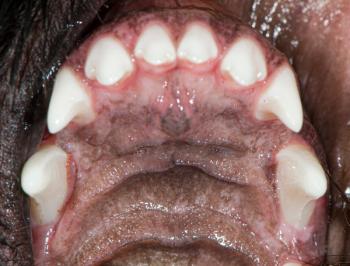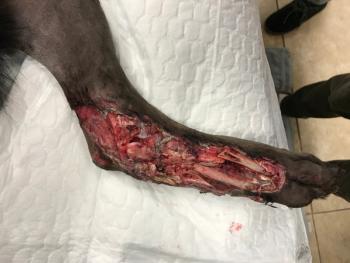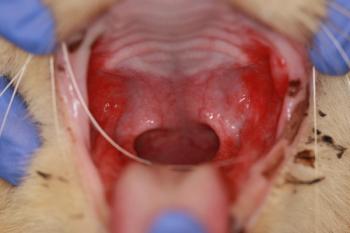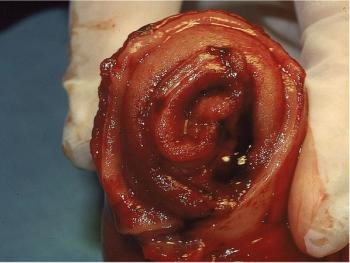
Check out this week's top headlines.

Check out this week's top headlines.

Antech’s novel blood test allows veterinarians to rule in or rule out IBD early and with confidence in dogs suffering from associated clinical signs.

The new drug has been proven safe and effective in relieving pain and inflammation associated with osteoarthritis.

A new study finds an explanation for why it’s so difficult for owners of obese cats to restrict their pet’s diet.

Researchers recently reviewed the published literature about growth of storage mites on commercial dry pet foods.

By tracking age-related progressions in gene methylation patterns of dogs and comparing them with those previously observed in people, researchers have constructed a new “epigenetic clock” for translating dog years to human years.

BluePearl is investigating the reasons behind a 70% increase in parvovirus cases seen in its hospitals in recent months.

A look at the advantages and disadvantages of raw, homemade, and vegan diets for dogs and cats.

Osteoarthritis is a painful, debilitating condition that affects countless animals. Here’s a look at alternative treatments being used in veterinary practices across the country.

When it comes to dental care, sometimes the best course of action is no action at all.

Here’s what you need to know about treating uncomplicated UTIs and recurrent infections.

In Episode 5 of The Vet Blast Podcast, Dr. Jacqueline Whittemore discusses the talks she is preparing for the virtual Fetch dvm360 conference later this month.

In explaining how a noxious stimulus in the periphery becomes an electrical impulse in the cerebral cortex, veterinary anesthesiologist Dr. Mike Barletta ultimately makes a case for multimodal pain management.

Learn about the 18 members of our new editorial advisory board, including a few fun (and surprising) facts about their personal lives.

Pets are good for everyone, including the homeless, but how do pets in homeless populations receive basic veterinary care? Enter Dr. John Geller and The Street Dog Coalition.

Test your diagnostic skills by examining the following images and selecting the answer you think fits best.

Check out this week's top headlines.

Practical tips for improving your pain protocols and increasing veterinary patient comfort by extending local anesthetic blocks.

Well-known British statistician George Box famously said all models are wrong, but some are useful. Here’s what he meant — and why you may find disease modeling for the novel coronavirus so confusing.

The VVCA will host its first summit virtually next month with the aim of helping veterinary practices navigate the world of telehealth.

A new study attempts to understand the potential associations between vector-borne diseases and proteinuria in a southeastern U.S. canine population.

Immunotherapy — using an individual’s own immune system to fight disease — is one of the fastest-growing areas in both human and veterinary research. Here’s the latest.

The investigational trial will evaluate the safety, efficacy, and potency of using stem cells to treat cats with refractory gingivostomatitis.

A practice owner who decided to refer all clients to Lap of Love finds that doing so has benefits for both his clients and his practice.

Several studies in the U.S. and Europe are exploring the canine nose as a potential surveillance system for the novel coronavirus.

Gastrointestinal motility disorders are a diagnostic and therapeutic challenge for many practitioners. Here’s how to narrow down the affected area so you can identify the cause and provide appropriate treatment.

With heartworm infections on the rise, researchers from the University of Liverpool have identified two immunosuppressive proteins in Dirofilaria immitis as potential targets for a novel vaccine.

The risk for contracting this infectious disease, which in the United States occurs primarily in the West, is extremely low when precautions are taken.

The company recently introduced three new veterinary gastrointestinal diet products, two for kittens and one for puppies.

A new study shows that dogs fed a diet high in medium-chain triglycerides had a significant reduction in seizure frequency compared with control dogs.